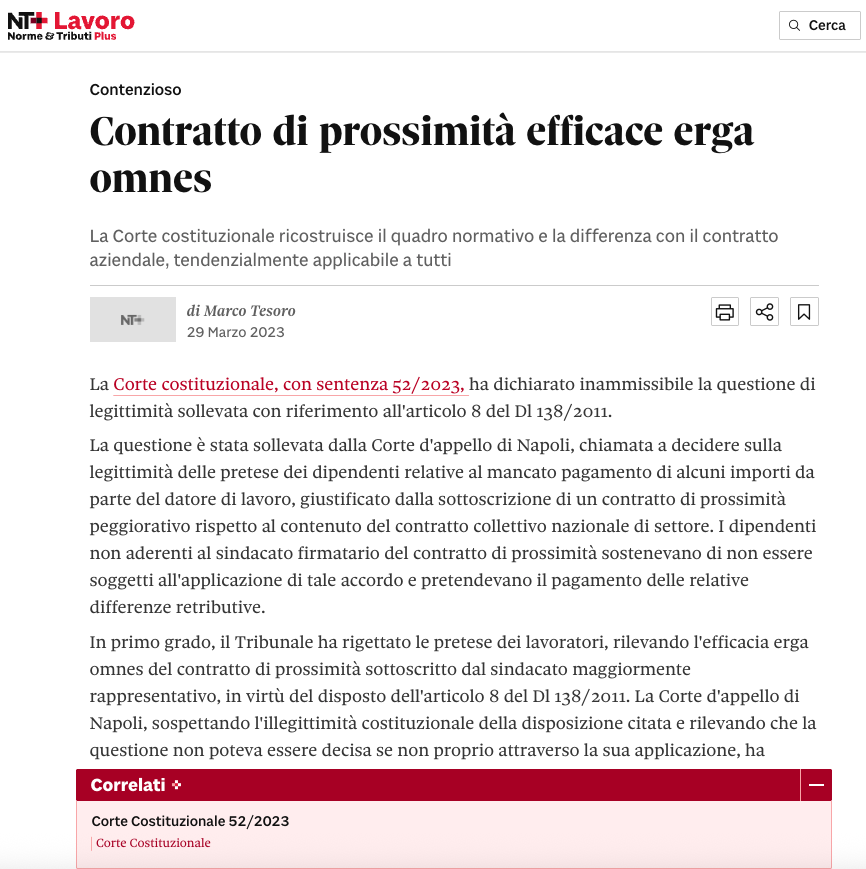Related Posts

Articles29 July 2022
Dismissal in small companies: Jobs Act to be reformed to ensure higher protections
Corte Costituzionale sentenza n. 183 depositata il 22 luglio 2022 Risulta ormai indifferibile una riforma della disciplina relativa all'indennità risarcitoria prevista dal c.d. Jobs Act per i...


